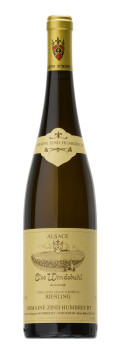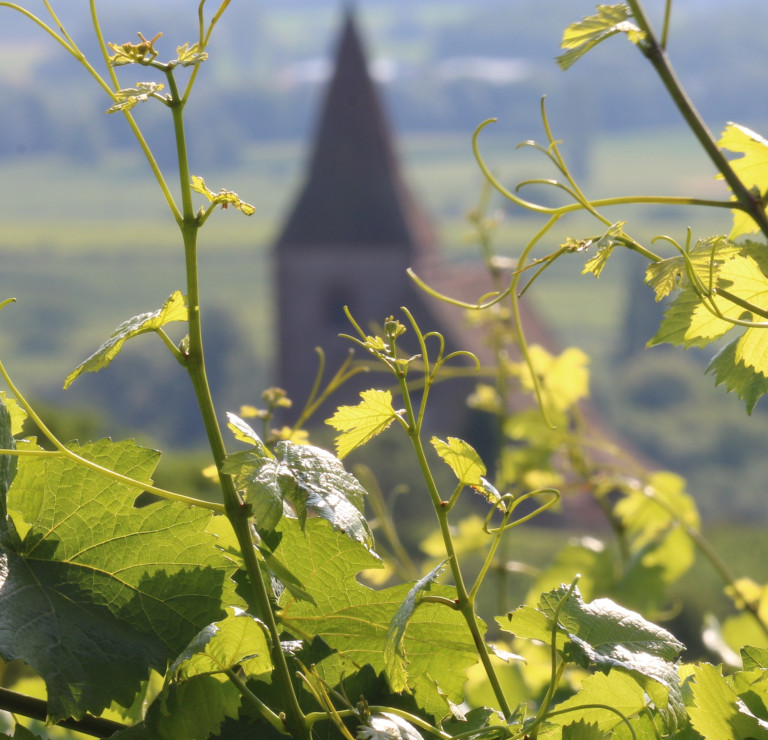
Technical presentation
| Bottling : | February 2010 |
|---|---|
| Acquired alcohol : | 12.6 ° |
| Residual sugar : | 9.0 g/l |
| Total acidity : | 5.2 g/l H2SO4 / (8 g/l Tartrique) |
| pH : | 3.0 |
| Yield : | 45 hl/ha |
| Optimum tasting : | 2014-2030+ |
| Average age of vines : | 34 years |
| Grape variety : | Riesling |
| Terroir : | Clos Windsbuhl |
| Sweetness index : | 1 |
| Soil : | Muschelkalk calcareous, South East facing, South facing |
Description of the wine Riesling Clos Windsbuhl 2008
The Clos Windsbuhl enjoys late ripening climatic conditions, enhanced by the fact that it is located on a rocky calcareous soil at higher altitude near the neighbouring forest. Despite the south to east steep facing, it took until the middle of October to perfectly ripen these healthy grapes. Windsbuhl has this unique capacity to keep the grapes beautifully healthy until quite late, doesn’t lose its acidity through long maturation, allowing the soil character to fully develop into the wine. The 2008 had a very similar structure than the 2007, but fermentation was much slower, probably due to a higher acidity, and the wine kept a hard to notice slightly higher sweetness. Just like Rangen, this wine was never racked and spent 18 months on its fermenting lees.

Tasting notes
02/2010 : The nose shows racy minerals and citrus fruit; I know that minerals do not smell, but there is an obvious sense of rocks and soil in this wine. Even the ripe acidity is noticeable on the nose! The palate is delicate, long and intense, showing great ripe acidity on the finish. The small residual sweetness is already digested by the wine. This is for long ageing, please wait !

The Clos Windsbuhl of Hunawihr
The altitude of the vineyard coupled with Hunawihr’s tardy climate means that the Clos Windsbuhl is often one of the last of our vineyards to be harvested. This explains the aromatic quality of the Clos’ wines and the consistent balance of acidity, a guarantee of good ageing. Although often harvested late, the Windsbuhl grapes are only rarely botryitized, doubtless due to the altitude of the vineyard, but nevertheless often reach high levels of maturity.